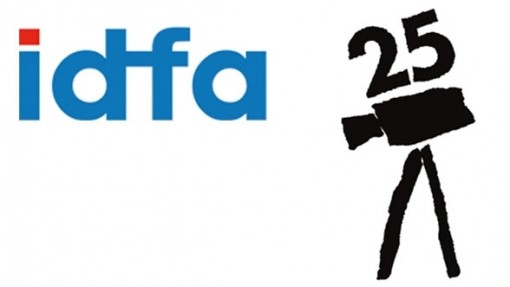
First-time director Lotfy Nathan's 12 O' CLOCK BOYS is screening at SXSW this year.
For someone mired in New York City’s dark winter for far too long, South by Southwest holds the promise of warmer climes, reasonably priced barbeque and cold beer. This year–like any other–the festival’s programmers have put together a selection of non-fiction work designed to entice any self-proclaimed fan of documentary out of the sunshine and into a darkened theater. Here are five films I think are worth waiting in line for.
THESE BIRDS WALK (Visions) Last summer Filmmaker magazine anointed the duo of Omar Mullick and Bassam Tariq as among the 25 new faces of indie film, and for good reason. The pair earned a mountain of press for their 30 Mosques in 30 Days documentary project and its user-generated offshoot, 30 Days of Ramadan. Mullick and Tariq banned both voiceover and talking heads in the making of THESE BIRDS WALK, a portrait of a young runaway living in Karachi, over which hovers the story of Pakistani humanitarian Abdul Sattar Edhi. The film comes to Austin fresh from a screening at the True/False Film Fest, where it built both buzz and a solid base of support among viewers. Watch the trailer; if there’s a heart beating in your body I promise you will have goosebumps.
12 O’CLOCK BOYS (Feature Competition) Lotfy Nathan’s directorial debut ostensibly follows the not-quite-yet teenager Pug as he seeks to align himself with an outlaw dirt bike gang that runs roughshod over the streets of Baltimore. But the clear subtext of 12 O’CLOCK BOYS is the dire economic and class divisions that drive Charm City’s young bikers to define themselves oppositionally to the Baltimore police, along with pretty much any other established social institution. Nathan’s film ends with a major catharsis for his subject, but probably not in the way you’d expect.
Continue reading…
Programmers occupy a unique space in the film landscape, serving as a force that both curates and supports films, while often remaining unknown to all but the most impassioned cinephiles. Given that STF Artistic Director Thom Powers has made programming documentary film his life’s work, I thought it would be interesting to get his views on the state of documentary in the year 2012. What follows is a conversation we had on December 30, 2012.
[This Q&A was edited for clarity]
Rahul Chadha: I guess the first question is, if you had to sum up the year in documentary, how would you do it?
Thom Powers: One of the things that impressed me about 2012 was the sizable output of really intellectually meaty films. And a lot of these films had to do with the Middle East—and I’m thinking of THE LAW IN THESE PARTS, or THE GATEKEEPERS. And outside of the Middle East I would point to THE CENTRAL PARK FIVE—films that had a really strong engagement with history and showed a depth of reporting and probing interviews that really added to our understanding of these different issues.
Continue reading…
I try to maintain a policy of not speaking publicly about films I don’t program. However, because Caveh Zahedi has accused me in a YouTube video of “blacklisting” his film The Sheik and I, I want to clarify certain facts before further misinformation gets out of hand.
Here is the background:
Prior to the SXSW film festival, Caveh Zahedi asked for my opinion of his film The Sheik & I. I wrote him a private letter detailing my grave reservations about the film and what I considered the disregard that he showed for the people filmed – in many cases without their consent – and the possible repercussions for their safety. I advised him not to show the film at SXSW in its current state. I shared that letter with SXSW programmer Janet Pierson, so that she wouldn’t be taken by surprise if Zahedi followed through on my advice; and because I thought the issues were serious enough to warrant further consideration on her part. That is the only occasion when I initiated any correspondence with a festival programmer about the film. As we know, that email didn’t change the course for SXSW. I also wrote to three journalists after they had written positively about the film to provide additional context. None of that correspondence resulted in any change of their positions.
Zahedi uses the term “blacklist” evoking the era of Joe McCarthy when filmmakers had their livelihoods threatened. That’s a far cry from this situation. On the contrary, it’s important to note that I curated his earlier film I Am a Sex Addict for SundanceNOW’s Doc Club for February 2013.
I’m hardly the only person who had problems with The Sheik and I. I’d point you to this substantial review out of SXSW in Collider.
Other critics have been more favorable and other festivals have embraced it. But Zahedi can’t seem to accept that he’s made a film with a mixed response.
This incident has been thoroughly raked over by other journalists including Violet Lucca of Film Comment who spent a lot of time looking into it in the spring before deciding it wasn’t really a story.
It’s ironic that Zahedi stands on the ground of free speech, yet wants to smear me for exercising mine.
– Thom Powers
 The Sundance Institute this week announced the lineup for the 2013 Sundance Film Festival, actually taking two days to announce the full list of films that will be screening in Park City, Utah, early next year. At first blush, the doc that seems to be getting the most attention is PUSSY RIOT – A PUNK PRAYER, about the Russian dissident punk band. At Realscreen, coverage came courtesy of Kelly Anderson, who wrote a piece about docs in competition and another about a few spotlight films heading to the festival. At Indiewire, Jay Fernandez’s coverage was split into two pieces as well, one on the U.S. docs in competition and another on the world docs. The DocGeeks blog also had a piece on the out-of-competition films at Sundance, as well as the projects being shown as part of the New Frontier program.
The Sundance Institute this week announced the lineup for the 2013 Sundance Film Festival, actually taking two days to announce the full list of films that will be screening in Park City, Utah, early next year. At first blush, the doc that seems to be getting the most attention is PUSSY RIOT – A PUNK PRAYER, about the Russian dissident punk band. At Realscreen, coverage came courtesy of Kelly Anderson, who wrote a piece about docs in competition and another about a few spotlight films heading to the festival. At Indiewire, Jay Fernandez’s coverage was split into two pieces as well, one on the U.S. docs in competition and another on the world docs. The DocGeeks blog also had a piece on the out-of-competition films at Sundance, as well as the projects being shown as part of the New Frontier program.
The doc awards machine continued to trundle on, with Realscreen’s Kevin Ritchie reporting that David France’s HOW TO SURVIVE A PLAGUE won best docmentary at the Gotham Awards, while the Jared Leto-helmed film ARTIFACT took home the audience award. Writing at the Documentary Channel blog, Christopher Campbell said ARTIFACT’s win propelled the film to his must-see docs list for the year.
Continue reading…
 The International Documentary Film Festival Amsterdam (IDFA) ended on Nov. 25, but the festival announced its award winners a few days earlier, with director Alan Berliner winning the award for best feature-length documentary for his latest film FIRST COUSIN ONCE REMOVED. Adam Benzine of Realscreen wrote a piece on all of the winners, as did Rosemarie Hugill of the DocGeeks blog.
The International Documentary Film Festival Amsterdam (IDFA) ended on Nov. 25, but the festival announced its award winners a few days earlier, with director Alan Berliner winning the award for best feature-length documentary for his latest film FIRST COUSIN ONCE REMOVED. Adam Benzine of Realscreen wrote a piece on all of the winners, as did Rosemarie Hugill of the DocGeeks blog.
Programmer Basil Tsiokos was also at IDFA, turning out copy for Indiewire over the course of the festival. You can read his post highlighting ten films on his must-see list here, and take a look at seven projects at IDFA Forum worth keeping an eye on here, which includes POV series producer Yance Ford’s project STRONG ISLAND. Rose Vincelli of Filmmaker Magazine also had a write up on the IDFA Forum, as did Realscreen’s Adam Benzine. And STF Artistic Director Thom Powersdug up an article about the Forum that he penned for the Boston Globe almost 10 years ago for those interested in seeing how things have changed since then. The True/False Festival blog took a look at Victork Kossakovsky’s Top Ten films that screened at IDFA. Also, Nienke Huitenga reported on the Interactive Doc Conference at IDFA for the festival’s website, while Mandy Rose also had a comprehensive rundown of the Interactive Conference events for the i-Docs blog.
Continue reading…








